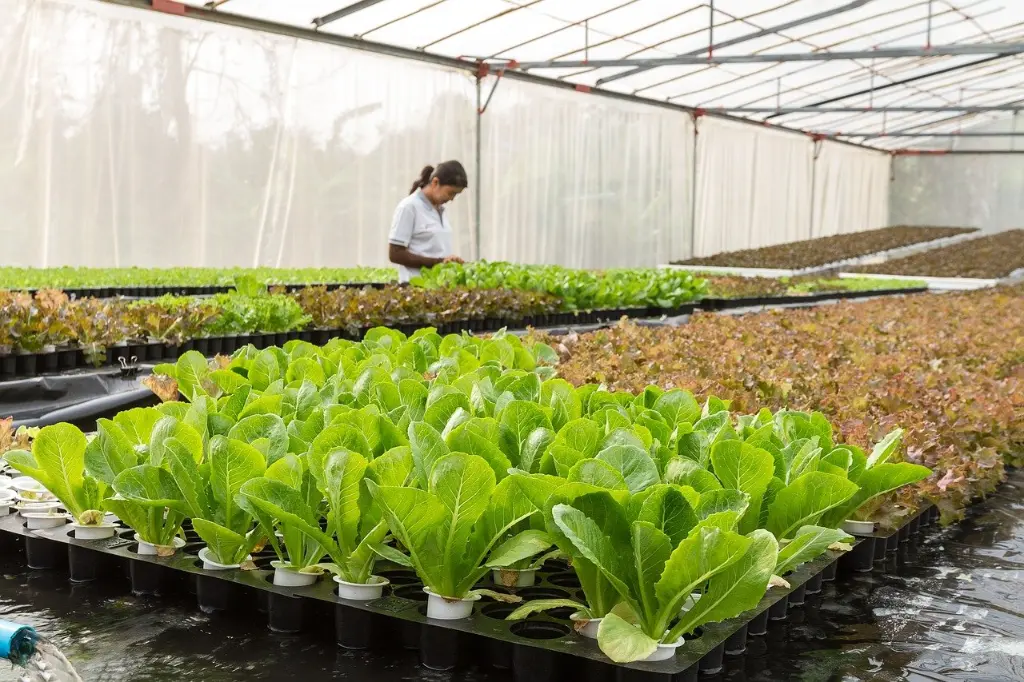Farming is speeding towards the future as the industry tries to establish cleaner practices and bring fresh food closer to those who need it. Read further to discover some of the innovative practices that are helping to reduce food waste, grow more food with less space, rejuvenate our land and provide food to those living in food deserts.
Rooftop Farming
 Urban farming is the practice of creating gardens and growing food in limited spaces in an urban setting. There are many ways that people can practice urban farming even in their apartment. One urban farming method is rooftop farming. A rooftop farm uses an unused area (a roof) to plant and grow food. This option has many benefits including reducing the energy used by the building for cooling and heating as the garden acts as a natural insulation. Creating a rooftop garden can be done almost anywhere as long as the roof is structurally sound and able to handle the weight. This is a great option for those living in an urban setting where there are few grocery stores also known as a food deserts.
Urban farming is the practice of creating gardens and growing food in limited spaces in an urban setting. There are many ways that people can practice urban farming even in their apartment. One urban farming method is rooftop farming. A rooftop farm uses an unused area (a roof) to plant and grow food. This option has many benefits including reducing the energy used by the building for cooling and heating as the garden acts as a natural insulation. Creating a rooftop garden can be done almost anywhere as long as the roof is structurally sound and able to handle the weight. This is a great option for those living in an urban setting where there are few grocery stores also known as a food deserts.
Backyard, Balcony or Neighborhood Farming
For those lucky enough to have a spot of land there is the option of growing food in your yard. Should you share your space or you are uncertain of the safety and quality of your soil then growing plants in pots on your patio or in your yard is an excellent option. Many community members who find themselves without a patio or yard space are coming together to create community gardens. These gardens can be in an empty lot or a park. This type of garden may be a communal neighborhood garden where volunteers do the farming or each person may be assigned a plot which they can garden as they see fit. Community gardens provide a variety of benefits to the neighborhood such as healthier lifestyle, cleaner environment and a more beautiful neighborhood. One of the big pluses to a community garden is that it provides education to the locals in the area about where their food comes from, sustainable and organic farming practices and provides access to ultra local and ultra nutritious produce for the area residents. If the idea of a community garden interests you but your area doesn’t provide one then moneycrashers.com has an article that will help you start one in your neighborhood.
Hydroponic or Aquaponic Farming
You may not have land or a balcony or have access to a community garden. If this describes you then a hydroponic or aquaponic garden is an alternative. Hydroponic and aquaponic gardens are grown indoors without soil. The beauty of this farming style is that you can grow a garden in limited space and kits are available for sale if you are not a natural DIYer. Although they sound similar there is one big difference between hydroponics and aquaponics. Aquaponics your plants are provided with the nutrients they need from fish however with hydroponics you use a solution that is formulated to provide the nutrients that your plants need. The fish in your aquaponics tank can be pets and provide you with the simple joy of caring for a living thing or the fish can become another source of nutrition for your family and end up on your dinner table. The choice is yours. There are differences between the two systems though both are a great option. If you would like to read further on which system would be right for you university.upstartfarmers.com has a great article which breaks down the differences so that you can make an informed decision.
The health of all living things and our planet are interdependent. Creating an urban garden in your neighborhood helps to eradicate food insecurity, cleans the air and beautifies your corner of the world. It can bring people together with a common goal and help youth learn where food comes from and how to be a bit more self-sufficient. Added to that, farmers are famously generous. No one who grows food wants excess to go to waste. This allows urban farmers to share their green bounty with their neighbors creating a strong community bond. So gather a group of neighbors or friends and start planning your urban farm today.
FAQ
What is Urban Farming?
grocycle.com defines urban farming as “growing or producing food in a city or heavily populated area.”
What does urban farming do?
The National Agricultural Library states that urban agriculture “contributes to regional economic development by keeping capital within the local economy”.
What are three benefits to urban farming?
freightfarms.com lists benefits of urban farming as:
- Tap into the local food trend which is one of the fastest growing segments of the produce industry
- Helps to boost the local economy and help small businesses flourish because more and more businesses are looking to get their produce locally.
- It is an effective way to reduce the environmental impact of agriculture since farmers need to travel shorter distances and urban farmers tend to lean towards more environmentally friendly farming practices.
